Without BY YOUNIS ALAKHZAMI
Without BY YOUNIS ALAKHZAMI
TRANSLATED BY MICHELLE HARTMAN & CALINE NASRALLAH
Alia
Khobar, Saudi Arabia
To be in love with a girl is in itself a crime. This is all the more true if she is a fellow student at your all-girls’ high school in the Bayounieh neighbourhood in Khobar. These feelings are too sinful even to be inwardly acknowledged, let alone publicly expressed. Keeping them secret goes without saying. But what would happen, I wonder, were I to openly declare these feelings for my classmate Moodi? I was fully aware that there could be only one possible outcome. It was inevitable. Complete and utter doom.
Still, I longed to confess my secret love to Moodi. My feelings were at war with each other. They were relentless, threatening to suffocate me every minute of every day.
I love you, Moodi. I love you so much. I want to spend the rest of my life with you. I feel a boundless longing to be with you. I woo her beautiful spectre, as if in a lucid dream.
Moodi comes from the well-to-do Qa’ad family. She’s a pretty girl with rosy cheeks, whose clothes give off the scent of traditional Arabian incense mixed with French perfumes. Her delicate, pearly white teeth are always busy chewing gum, and its minty fragrance trails in the air behind her, reminding everyone of how flawless she is. She’s neither too curvy nor too slender, but perfection. She’s an angel fallen from the sky one cool day when the flowers began to blossom, when everything took on a rose-coloured hue. Anyone who claims she’s merely human is a liar! She has creamy skin with pinkish undertones, full, rosy, and perfectly drawn lips. Whenever her luscious coffee-brown hair bursts free from her hijab, it cascades down over her neck and shoulders like a silken waterfall. There is no doubt that she’s different from all the other girls I’ve ever known here in Khobar. She’s not even like those beautiful girls from Aden or Taiz who I had the chance to see up close last summer, when, for the first time, I set foot in the land of my ancestors in the far south of the Arabian peninsula. I’m nearly certain that with all of the beauty God granted her—her unique refinement, the glint in her eyes, and her teeth as shiny as pearls—thousands would flock to her and try to win her affections.
But that sweet and happy young woman, who always has a smile on her face and pays little attention to her studies, pays even less to my emotions. She’s indifferent to the looks cast her way by petite, Yemeni me, described by our fellow classmates as having “tomato cheeks.” Since I’m well-spoken and diligent, they call me a nerd. No one can best me in the finer arts of grammar and rhetoric. I keep to myself most of the time. A smile rarely crosses my face.
“You look sad and subdued all the time, like an orphan,” one of them told me. “Everyone agrees you always seem worried about something.” Another tugged at my heartstrings when she whispered in my ear with a sly smile, “Anyone who looks at you would swear you’d fallen in love. Do you have a crush on someone?” I instantly feared she might have noticed my attraction to Moodi, and that she would gossip about me behind my back.
In any case, I don’t blame Moodi for her indifference. Who could blame her, really? All the girls at school vie for her attention. Her teachers are drawn to her and give her passing marks even if she doesn’t show up for exams. The school’s headmistress once said, “You’re as sweet as honey, Moodi. Your mother must be Egyptian!”
At night, in the shelter of my bedroom, when the universe is still save for the sounds of distant cars—young men racing to show off their speed and, quite frankly, suicide skills—I nestle my head into my pillow. I lure my eyelids shut and will sleep to come. But it never does. A vision of Moodi occupies my every waking thought—her laughter, her gestures, the flash in her hazel eyes, the outline of her symmetrical face and round, soft cheeks, polished and rosy like two apples. Her small nose that flares a little at the bottom does nothing to distort her beauty, not at all like her sister Bayyan’s nose, which juts out of her angular face. Bayyan is one year older than Moodi and is enrolled in the science track at our school.
But Moodi acts as if she doesn’t know I exist. She never spends any time with me, though I wish she would. She never even asks how I’m doing the way she does with the other girls. Our classmate Watfa is her best friend. They both agree that high school is the furthest they’ll take their education. “By the time you finish, you’ll be old and grey, and by then it’ll be hard to have children and raise them properly!” Moodi would proclaim, always trailed by Watfa’s agreement: “Education does nothing for a woman’s future, nothing at all!” They’ve convinced each other that their marital homes will be more worthy of their time and attention than pointlessly pursuing an education. Like a broken record, Watfa repeats this whether or not it’s appropriate. Men and marriage are the main topics of conversation for her and Moodi. This comes up once, twice, even three times a day, with no sign of abating. It’s even the main course when we gather at teatime during the half-hour break between periods— “God will never be pleased with a woman who doesn’t focus on her husband and home.”
She doesn’t let up: “Women weren’t created to work and get tired. Our soft bodies aren’t made for drudgery and toil. Women are made to raise children and care for their husbands.”
She carefully examines our faces as she speaks, alert to who’s on her side and who isn’t. Her anger swells and her face brims with confidence as she swears by Almighty God that what she says is true; it’s logical, correct, and indisputable. This is a righteous truth that cannot be invalidated, as undeniable as the light of the sun. Her argument culminates in one final proof, “That’s why my father lives so happily with my mother. She’s never once complained—not about him, not about her life.”
Sometimes Watfa even cites Qur’anic verses and sayings of the Prophet she’s heard her father repeat. “This is what Allah wants for us— ‘And abide in your houses’; and He also said that women must not wish to become like men—‘And do not wish for that by which Allah has made some of you exceed others’.”
Despite all this, and the fact that I’ve been growing increasingly certain that Moodi will never notice me or my feelings, I’m still inexplicably drawn to her. She affects me a great deal, though I know very well that at the end of the day—and at the end of the current school year, seven months from now—Moodi will go her way, and I’ll go mine.
She’s lodged herself deep within me, whether I like it or not. Every time I see her walk into the classroom, my heart skips a beat. It then proceeds to pound against my ribcage when her steps lead her in my direction. My chest tightens and my stomach flutters when I see her laughing and chatting with Watfa, cheerful as usual. I envy Watfa. Sometimes I even resent her and wish she would just disappear.
Though we’ve been classmates for two years, only recently has Moodi come to occupy my every thought and waking moment. I don’t understand what’s happening to me. All of a sudden, these complicated and conflicting feelings started growing inside me, and they fixated on her. Here I am now, unable to control either my feelings or the obsessions that follow.
The onset of these feelings for Moodi is not the only new fixture in my life. I’ve found myself becoming more and more drawn to the songs my father Abdel Rahman plays on repeat, especially those by Umm Kulthum, Abdel Halim Hafez, and Farid al-Atrash. Every Thursday, my father follows a special routine. He gets home from work at sunset, weary and exhausted. He takes a shower and sprays his clothes with his favourite cologne, a mixture of oud, sandalwood, and cardamom—or that’s what he claims the secret ingredients are. He then reclines on the sofa in his room, my mother Jawaher right by his side. She’ll have already made the necessary preparations for this weekly ritual. She cooks dinner extra early on Thursdays, so as not to miss out on sharing the entire evening with him. Then the whole house is flooded with Umm Kulthum’s voice. Her distinctive rhythms set the stage for the night. I cannot recall one Thursday in all the years we lived in Khobar that started with any voice but hers. Al-Atlal, Enta ‘Omri, Fat al-Ma’ad, al-Hobb Kollo, Lelat Hobb, Ya Msaharni, and Aghadan Alqak—these songs were our companions throughout those years. My father says Fat al-Ma’ad is the most beautiful song he’s ever heard, “the lyrics, music, and performance.” He sings along after Umm Kulthum’s lengthy crooning, “What good is regret… what use is reproach?” In a euphoric daze, he exclaims, “God bless you, Baligh Hamdi, you’re a composer like no other! What a genius… genius doesn’t even describe it…”
He then calms down and finishes his thought, “If only the lovely Umm Kulthum had not sung it in the year of the Naksa.”
The muscles in his face tense up when he reaches the part of the song where she sings:
The curtains of oblivion fell long ago
If it’s about past love and its harshness
I’ve forgotten it; I hope you forget it too.
He sways his head as he sings along, stopping only when he begins to lose his voice.
The ritual continues until the very end of the night. Before he climbs into bed and submits to slumber, he listens to one or two songs from Yemen, his homeland. He has a special affinity for Ayoob Tarish’s Wa Mfareq Bilad en-Noor. “This song will be the main reason we return to Yemen,” he often used to say, to me and to anyone else in the house.
You who left the country of light, the time has now come to reunite
Loyalty to the homeland is calling, the time to heed that call is now.
Do not stay away, enough distance, agony, and sorrow…
Yemen awaits you with open arms.
Stranger to the homeland, enough distance and travels
Loyalty is religion, grace your families with your presence.
Enough of letters, paper can be burned with fire,
And money brings no joy to those who are longing.
The songs of Abu Bakr Salem bring tears to his eyes and tug at his heartstrings, which were already heavy with yearning. They also nudge forward his plans to return to Yemen as soon as possible.
He would flip between two songs, each making him more homesick than the other.
If you fly, fly to the town of Aden
Passions run high, I am too far, I am too sad.
I cannot take this distance,
Every day feels like a year,
It is the paradise of the world,
It holds all art dear.
And:
If you love your home, get up and dust yourself off.
For you, Mukalla, Sanaa, Aden.
Yemen is sweet, even sweeter are its people.
I rarely focused on the lyrics of the songs my father played. I barely paid attention to any single phrase. I always thought it so strange that my father sighed whenever Umm Kulthum, known as Kawkab al-Sharq, reaches the end of a verse. I couldn’t understand it. But this all changed with the tidal wave of emotion that swept over me and fixated my thoughts on Moodi. Now, I’m actually drawn to those sentences and expressions that seem to stem from my own mind, from the feelings simmering just below the surface. I focus intently, anxiously, on Umm Kulthum’s words:
Am I going to meet you tomorrow? How terrified my heart is of tomorrow…
And:
Oh, you who forgets me while you are on my mind,
Your spectre never leaves my sight,
Comfort me and empathise with my situation
And relieve me of all my worries.
Far from you my life is torture.
Don’t stray far from me.
And, every once in a while, my eyes swell with unwanted tears.
My mother has been attuned to these changes taking place within me. Back when I turned twelve and was still flat-chested, she grew more and more concerned. Later, she noticed my newfound interest in music just as she noticed my increased inclination toward quiet and calm. Not long ago, she was calling me silly and foolish. Now, I still haven’t gotten my first period, and I’m late compared to other girls my age. This worries my mother, who claims time is running out because soon a suitor will come knocking, his family in tow, to ask for my hand in marriage.
No, it’s fair to say that I hope the day my mother has been fretting about never comes. I’m in no condition, psychologically speaking, to picture a man sharing my bed and inching closer to me to “flirt with me, touch me, hold me, and enjoy my charms”, as Watfa keeps repeating. Moodi always nods along in total agreement. But I cannot imagine a man breathing so close to me. The mere thought of it makes me sick.
But I do wonder, sometimes, why I don’t have the same desires that Watfa and Moodi do. Why don’t I care the slightest bit about men? Am I not a woman? I find it very odd that these feelings only come with puberty. When we were still in junior secondary school, girls started talking about boys. Is it safe to assume that they all hit puberty so early on? But when I hear my mother factually narrate how these things happen, I stop worrying. She knows best, after all. “They’re just deceptive, early teenage feelings,” she says, confidently brushing off my worries. “A girl only knows how she truly feels once she hits puberty and gets her period.”
In my current state, I feel an extreme aversion to men. With every day that passes, I grow less and less interested in them, especially the ones with hair growing on their faces.
“My mother says that men without hair aren’t real men.”
“My mother says that the more hair a man has, the more of a man he is!”
I listen to these conversations in class and feel queasy. They make my stomach turn, and I feel I’m going to be sick. Mirvat, our Islamic Education teacher, hates men. She once told us, “I can’t stand talking about them.” She announced that a man has to be very clean and not let his beard grow out too much so that wispy beard hairs don’t fall out onto the ground—or, even worse, get mixed into the rice when you’re eating. “I don’t like beards at all,” she asserted. “They disgust me.” Sarcastically, she asked, “Did God create hair for us just to let it grow?”
***
Back when I was in kindergarten, and during my early years in primary school, I spent a lot of time with my female teachers. I never really had the urge to play with the other girls in my class. Instead, I spent most of my free time between periods in my female teachers’ offices. Sometimes I would even prefer to just stand there, behind their office windows, watching them move around. A hint of a smile would dance on my face whenever one of them noticed me and ushered me back to enjoy playtime with my classmates. When I went home for the day, I would stay inside until the following morning, when I got on the school bus. My mother was always worried about me, constantly cautioning me against leaving the house. This made me less willing to go out and play with the neighbours’ children, who I viewed as monsters.
All this changed when I turned nine. That’s when I threw caution to the wind and forgot my fear of being outdoors, beyond the high walls that surrounded our house. I firmly implanted myself within the group of neighbourhood boys. I started talking to them, playing with them, acting just like them, all the while completely avoiding the many girls who lived in the area. My mother didn’t comment at first, and she didn’t object either, as long as I had no budding little bulges on my chest.
My father was surprised at my football skills, especially considering I was playing with boys. In his opinion, I was better than them, dribbling the ball and scoring goals with great precision. Jokingly, he once said that his dream—that my mother’s firstborn child would be a son—may actually have affected my genetic makeup. Perhaps I should have been a boy, as he had wished. He praised me, “The boys you play with can’t kick the ball as hard as you can. You’re the best player in the world. Better than Pele!”
When I turned thirteen, I was forbidden to play football with the boys. At the same time, I found myself involuntarily pulling away from my sisters Nuha, Suha, Anoud, and Shazza. I started to recoil from all the kinds of “girl talk” they shared. I preferred to spend time with my brothers Hamed, Assem, and the youngest, Mourad. I’d steal Hamed’s bicycle and ride on gravel, tiled, and dirt trails, and on the pavement, sometimes falling on the asphalt and scraping up my arms and legs. Barefoot, with dark blood dripping from my skinned knees, I’d race my brothers up dirt hills, covered in grime and dust, oblivious to how filthy my clothes would get.
I cared even less about how angry my mother would be when she saw me, about the screaming fit that would ensue. I’d follow them up the trunk of the massive walnut tree in the middle of our yard. Even when my climb ended in a painful fall and bruises all over my body, I never cared. My mother would scold, “You’re a girl, this is inappropriate!” And when she realised that her admonitions were going unnoticed, she would fly into a fit of rage and call me names. “Stupid,” “scatterbrained,” and other words she used went in one ear and straight out the other. And she didn’t stop when her anger dissipated. No, she then resorted to other weapons in her arsenal. She would sit me down next to her, bring her face close to mine, and then, very calmly, with a smile, give me some advice:
“You’re a girl, a lady, a delicate woman. Soon your womb will have fully developed and will be able to carry a man’s seed. You need to take better care of yourself. If God forbid you were to break your hymen with your reckless behaviour, you’d never find a man who’d agree to marry you. You’ll live your whole life without a husband, do you understand?”
But all her advice, everything she said, would float away on any passing breeze. She carried on, well-intentioned but naïve, “It’s okay to play, but don’t run around too fast, ride bikes, or open your legs so wide!” Again, I didn’t listen. Looking to my father for support, she’d complain, “Your daughter is going to drive me crazy!” But none of it made a difference to me. I went on feeling that I was a different kind of girl. “I’m not like other girls, Mama,” I would say. She would always shake her head, refusing to listen. Even Hamed backed me and confirmed, “This girl is more like a boy—ten boys even!”
When I turned fourteen, I started getting intense stomach cramps. They were irregular and kept coming and going every three or four days. This made my mother extremely happy. Joy returned to her otherwise morose countenance as she calmed my pain with analgesics, insisting that my cramps were the onset of period pains. “It appears you’re one of those girls whose periods are very painful. You’ll suffer, I can already tell,” she would say gleefully, then murmur, “but the pain will subside after marriage. I was just like you.”
But no blood flowed, and the cramps didn’t go away. They accompanied me everywhere, like a shadow. I would sit in front of the mirror, feeling my face and the wiry hairs that had started to grow above my lip and under my jaw. “When you get older, you’ll have light hair growing on your face, kind of like a beard,” the Sudanese endocrinologist, Dr Abdel Ghaffar, had said. He’d started following my case when my mother began to feel there was cause for concern. But he couldn’t find a convincing explanation for my condition. Obviously anxious and confused, he started scratching his bald head and making a sort of (+) sign on his cheek. He mumbled to my mother as I sat there watching. “There’s nothing to worry about with your daughter Alia. This is normal. Her body is secreting an excess of male hormones, which is expected for her age group. This will all go away when she hits puberty.” I was fifteen at the time.
The doctor’s words confirmed what our General Sciences teacher had told us in class: all our confused teenaged feelings of love, passion, and attachment to each other were transient and would fade away, disappearing with time. She also gave us the following advice: “It’s possible for a girl to like another girl, or for a boy to like another boy, during your teen years. It’s easy for feelings to get mixed up between ordinary, natural love—like the love between siblings and friends—and that other, unnatural love, which is the forbidden kind. So, girls, you must remain on your guard and be aware of everything happening around you. Don’t hesitate to tell your mothers if anyone makes you feel unsafe.” Then, resorting to stronger language, she warned us, eyes bulging, “And don’t you ever, ever, go near boys. At this age, they’re nothing but rabid dogs that will ravage the flesh of anyone they come across. They’re like wildfire, consuming everything in their path.”
Even at an early age, I’d never been emotionally drawn to boys. I always felt a profound interest in girls, and, as I grew, so did this interest. Two years ago, I met an Egyptian girl at school. She was in the year below me. Nasma. She was as gentle and breezy as her name suggests. She had ivory skin, rosy cheeks, and slender fingers. I was completely taken by her. One morning, I mustered up the courage to talk to her for the first time, and she stole my heart with unnerving ease. There was magic in her smile and in the pink of her cheeks. But soon after, she left our school and Khobar entirely, to move to Jeddah. I was miserable for days. She haunted my dreams for a long time.
When my sister Anoud, who is three years younger than me, got her period, I began to despair. She was only thirteen! I grabbed my journal from the bookshelf and started to scribble in it furiously, cursing the state I was in and imploring God to save me. It was He, after all, who had decided to make me as I was. No one else.
It’s not fair, I wrote. Why do Anoud and all my other sisters get to live their lives free of stress, while I have to deal with all this anxiety?! Why have I been sentenced to this torture?!
But I immediately felt guilty and tore out the page, afraid of God’s retribution.
***
To get a copy of the novel:
https://www.waterstones.com/book/without-2021/younis-alakhzami/michelle-hartman/9781788710800
On Amazon:

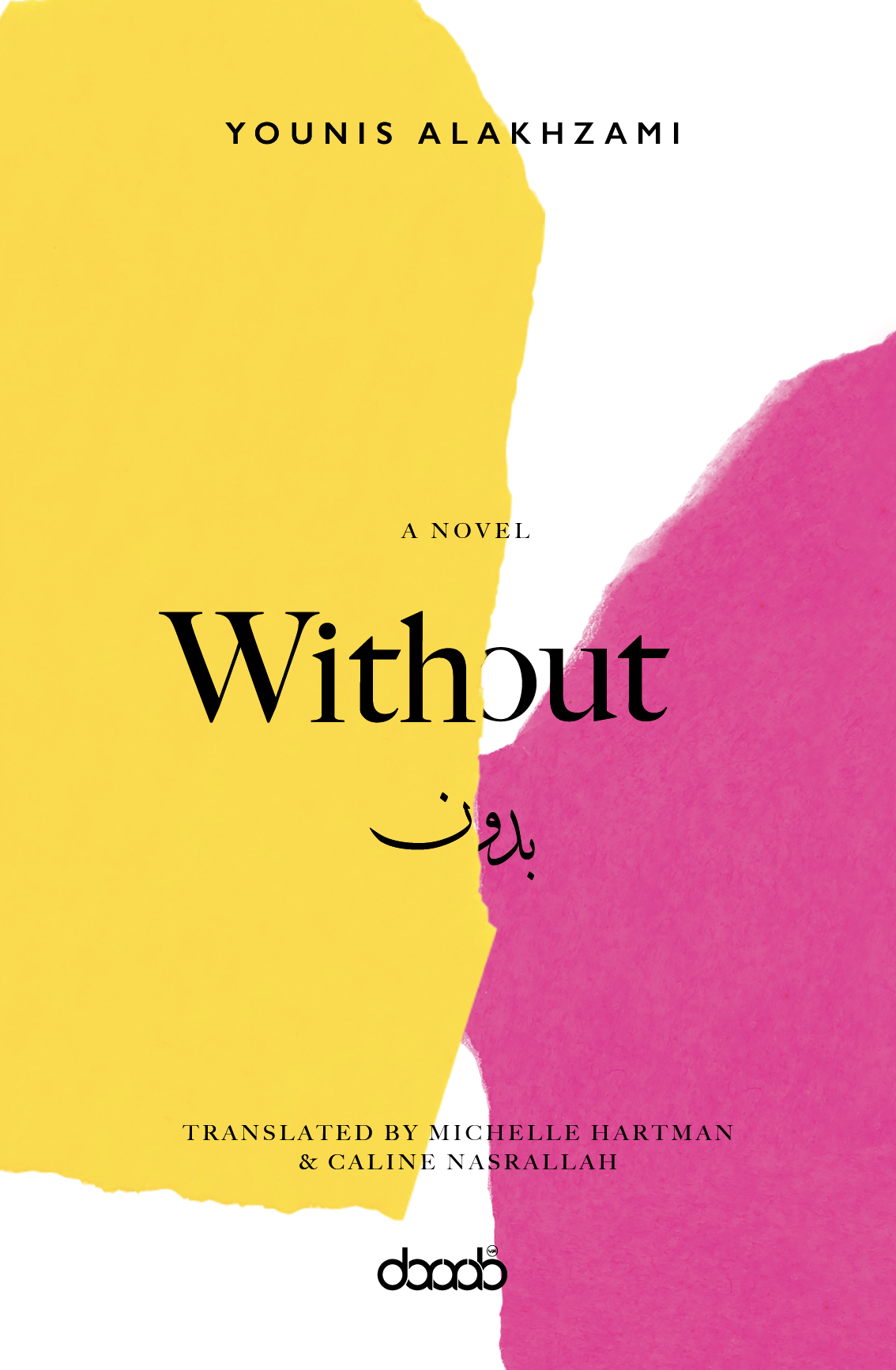

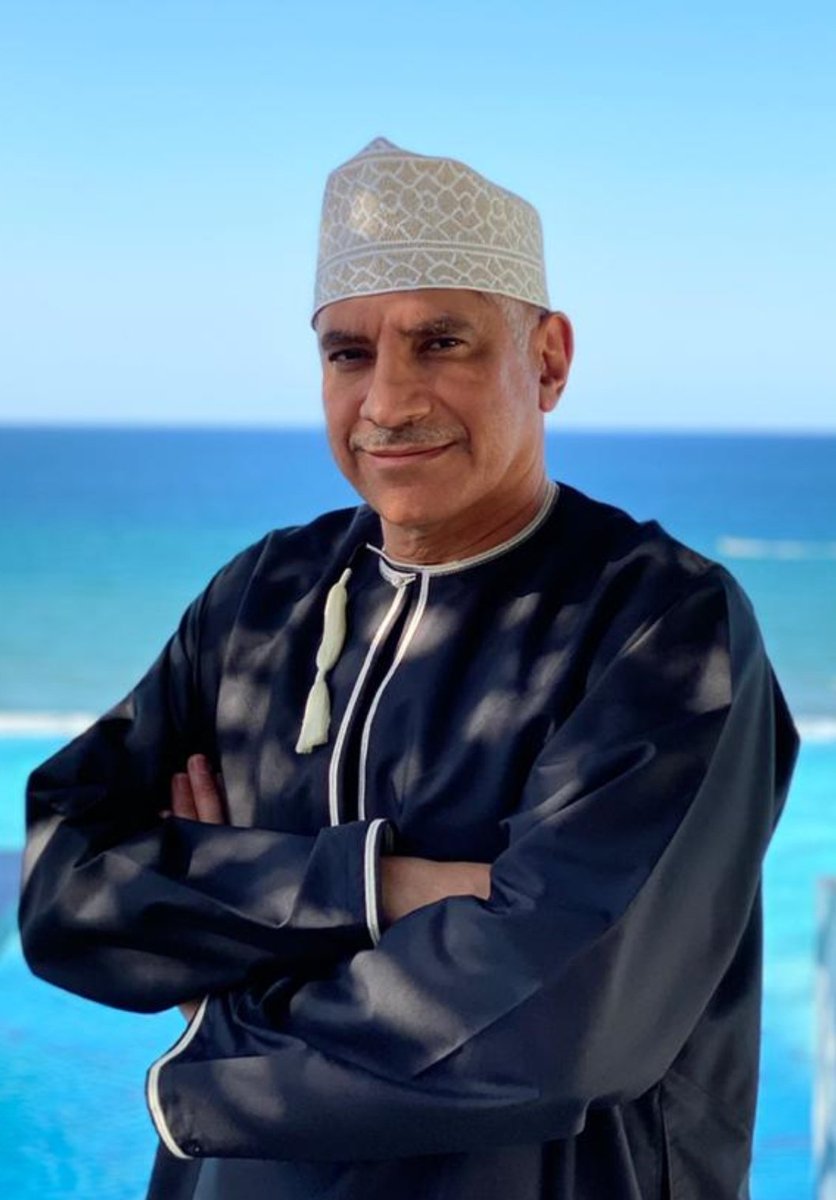

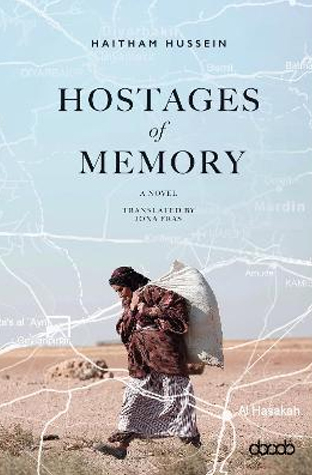

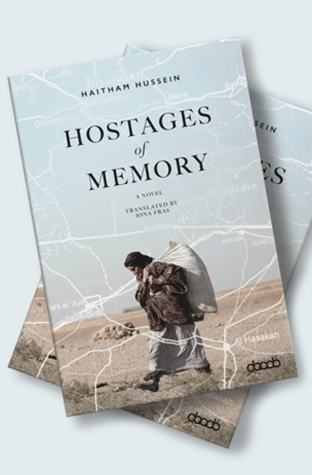
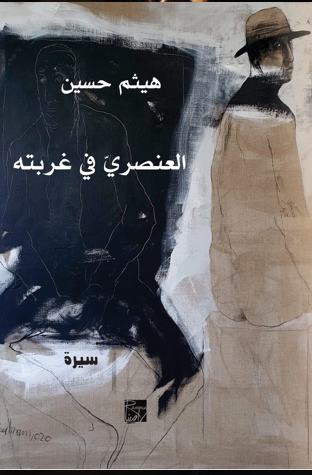

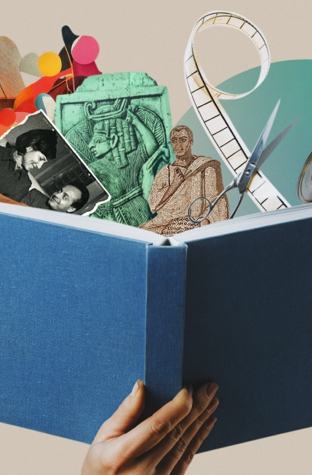
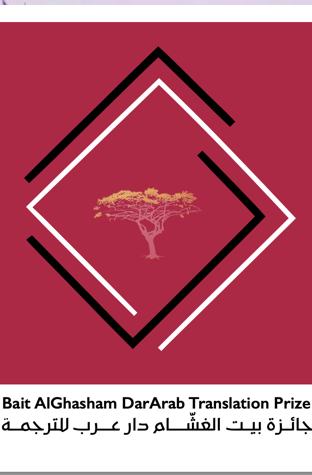
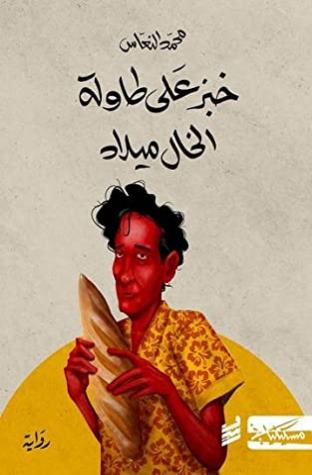
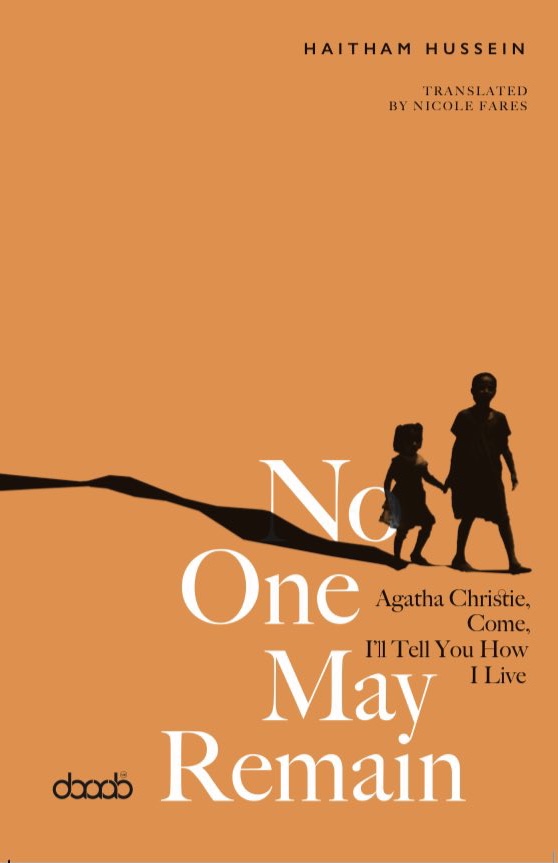

0 تعليقات